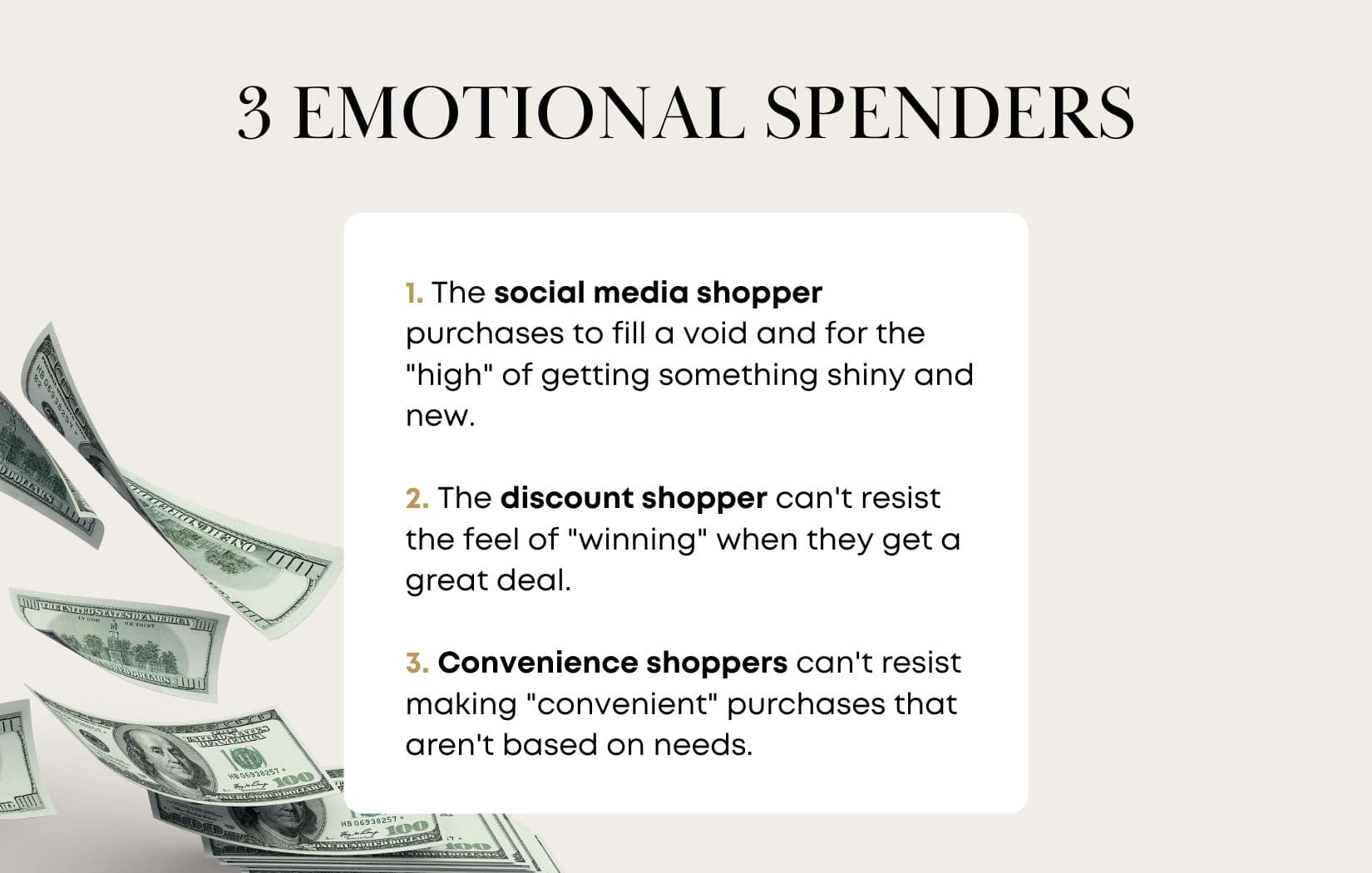3 Simple Money Management Rules
These three money management rules are simple tools that you can use to increase your money skills and start building your pathway to financial freedom!
Written By Tiffany Woodfield, Financial Coach, TEP®, CRPC®, CIM®
What is the 50-30-20 rule for money management?
The 50-30-20 rule for money management is where you separate the money you take home each month into three categories.
- In the first bucket, you’ll spend 50% of your paycheck on your needs.
- In the second bucket, you’ll spend 30% of your paycheck on your wants.
- You’ll set aside 20% of your paycheck for debt repayment and savings in the final bucket.
The most critical factor to make this successful is honesty and accountability when deciding on the difference between a need and a want.

Quick Video: 3 Tips to Start Budgeting
You can use these three simple steps tips to get started budgeting so you can achieve financial freedom more quickly and easily! Make sure you click the subscribe button if you’re YouTube user so you get more of these videos in your feed.
What is the 7-day rule for money management?
This simple rule is if you find something you want that is out of your budget, give yourself seven days before you allow yourself to purchase it.
After seven days, ask yourself two questions:
- Do I still really want the item?
- Is the price fair?
If you answered yes to the above questions, you can choose to purchase this item. The benefit of this 7-day rule is it reduces impulse shopping by giving you a “cooling off period.”
The 7-day rule helps you stick to your budget even if you’re feeling tempted.

What is the 20/10 money rule?
The 20/10 money rule is a budgeting tool to help you avoid getting into difficult situations where your debt becomes so large it is like an albatross.
The 20/10 rule says that your total debt shouldn’t exceed 20% of your net annual income, and your monthly debt payments shouldn’t exceed 10% of your take-home monthly income.
Let’s consider a simple example. If your take-home income is $100,000 after tax each year, your total debt shouldn’t be more than $20,000. If your take-home monthly income is around $8334, the monthly payments should be less than $833.
Quick Video: 5 Basic Elements of a Budget that Everyone Needs to Know
These five elements of a budget are critical to consider when you’re creating a financial plan that helps you build towards a work-optional lifestyle and financial freedom.
Budgeting and Money Mindset:
“How do you manage money effectively?“
The most important advice I can offer to manage your money effectively is to stop being afraid.
Be brave and look deeply at your finances.
It is surprising how many people, consciously or subconsciously, choose not to understand their financial situation. If you are someone who says, “I don’t understand finances,” “I am bad with money,” or “my partner handles all the financial decisions,” you fall into this category.
In my experience, people with these blinders aren’t just those who barely get by; they are also people with significant wealth. The common theme is that they have some internal work to do on their limiting beliefs around money, and I cannot stress enough that financial freedom comes with education and understanding.
Once you take the initial step of acknowledging these limiting beliefs, using financial tools becomes much easier.
After addressing the beliefs holding them back, people comment that they are surprised that what used to seem complex is now simple. They hadn’t realized they weren’t open to learning when they were previously stuck!

“Why do I always overspend?“
Overspending is when you spend beyond your means, and the most common facilitator or enabler is a credit card.
There are three main situations where people overspend, all based on emotions:
- The social media shopper sees something advertised on Instagram and purchases to fill a void and for the “high” of getting something shiny and new.
- The discount shopper can’t resist a deal and thinks, “Wow, this is on sale, and look at how much I am saving!”
- Convenience shoppers can’t resist the pop-up ads and making “convenient” purchases that aren’t based on needs.
If you overspend constantly, you’re most likely in one of those categories and use a credit card to make purchases.
It may be time to start excavating your limiting beliefs around money and begin manifesting true wealth.

“How can I make smart money decisions?“
The most important thing you can do to make smart money decisions is to address your subconscious limiting beliefs around money.
If you don’t do the work on your limiting beliefs around money, you’re leaving out a significant part of the equation when it comes to financial freedom. It’s as though your ankles are bound in rope, holding you back every step.
Instead of striding forward, you’re hopping along awkwardly. It’s so hard to make progress when you’re hampered with limiting beliefs.
Your limiting beliefs around money were set up when you were young and are things like “money is evil” or “rich people are bad people.” You may have a “lack mentality” where you think you need to hold on tightly to money. Working on these limiting beliefs makes tackling the areas of money management, such as budgeting, setting financial goals, investing, and becoming financially literate, much easier.
Related Articles
- Budgeting 101: How to Create and Follow a Simple Budget
- Manifesting Money: Use the Subconscious Mind to Create Abundance
- How to Stick to a Budget (Even If You’re New to Budgeting)
About the Author

TIFFANY WOODFIELD is a financial coach, cross-border expert, and the co-founder of SWAN Wealth based out of Kelowna, BC. As a TEP and associate portfolio manager, Tiffany has extensive experience working with successful professionals who want to leave a legacy and enjoy an adventurous, work-optional lifestyle. Tiffany combines extensive knowledge from her background as a financial professional with coaching and her passion for personal development to help her clients create a unique path that allows them to live their fullest potential. Tiffany has been a regular contributor to Bloomberg TV and has been interviewed by national and international publications, including the Globe and Mail and Barron’s.
Get the Free Guide and Audio Meditation for Manifesting Your Dreams
Pop your email address in the form below to get my easy checklist and guide to manifesting and the guided audio meditation to help you get started.
You’ll also get one or two emails per month with the latest blog posts about abundance, wealth-building, manifesting, and creating a fulfilling life.